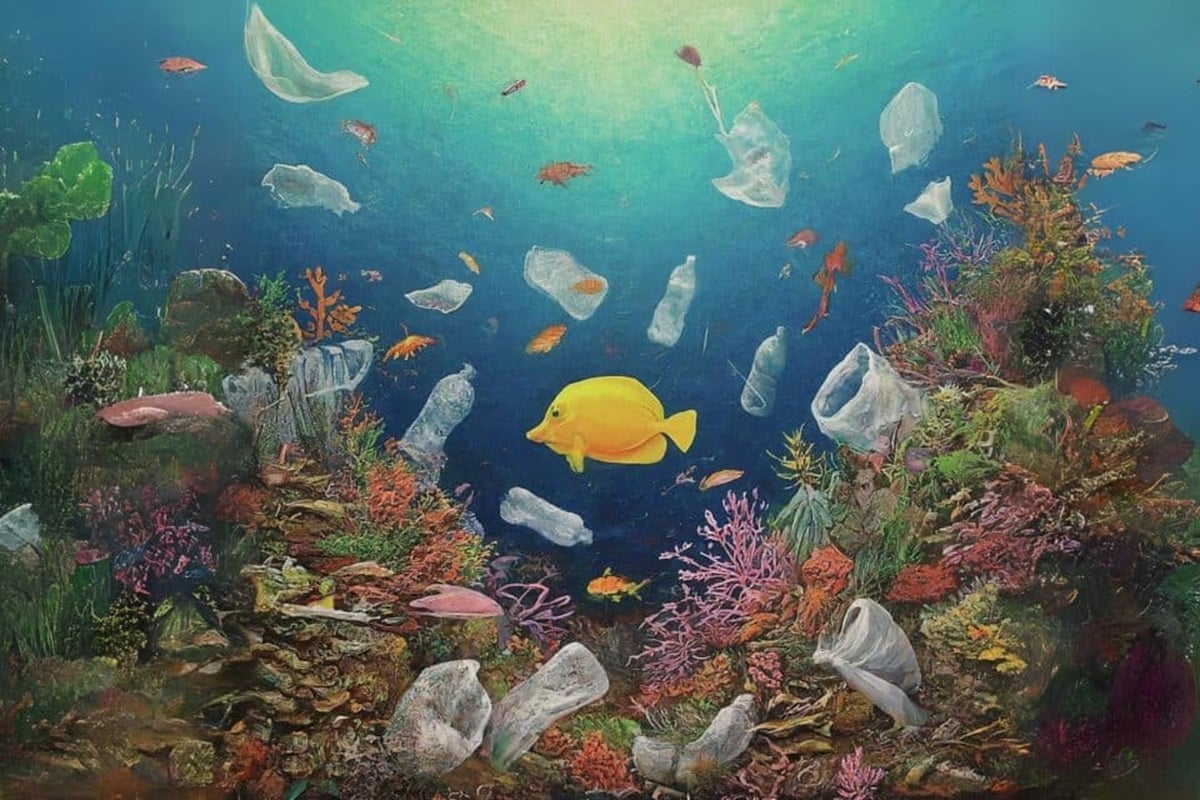Plastic pollution harms baby ocean animals. Plastic pollution hurts more than just big animals like turtles and birds. A study from the University of Exeter shows that plastic can harm baby ocean animals, even before they’re born. An embryo is like a tiny plan for an animal. It tells the animal how to grow. But when baby animals are exposed to lots of plastic, they don’t grow right.

Dr. Eva Jimenez-Guri led the study. She said, “When we gave the animals lots of new plastic pellets, they didn’t grow right. Some couldn’t make a shell or other body parts. Some stopped growing altogether. None of them could become a healthy baby animal.”
Plastic pellets, also called “nurdles,” are tiny pieces of plastic. They’re used to make lots of plastic things, but they often end up in the ocean. Plastic pollution doesn’t just hurt big animals like fish and crabs. It also hurts tiny baby animals, like those in the study.
The study looked at seven different kinds of animals. They’re all important parts of the ocean ecosystem. But when they were exposed to lots of plastic, they all had problems growing. Dr. Jimenez-Guri said, “If there’s too much plastic in the ocean, animals might not be able to have babies. That’s bad for them, bad for the ocean, and bad for us.”
Plastic itself isn’t always bad for animals. But the problem is the chemicals that get mixed into plastic when it’s made. One of these chemicals is called zinc. It’s okay for animals in small amounts, but too much can be harmful. As plastic breaks down in the ocean, these chemicals can leak out and hurt baby animals.
Here’s how it happens:
First, the plastic breaks into tiny pieces called microplastics. Then, the chemicals in the plastic start to leak out into the water. Finally, animals in the ocean eat the microplastics or absorb the chemicals. This can hurt their babies before they’re born.
Plastic pollution can cause big problems for the ocean. It can hurt animals, disrupt ecosystems, and even hurt people who rely on the ocean for food.
But there are things we can do to help:
1. Use less plastic: Buy things with less packaging, bring your own bags, cups, and containers, and look for products made from materials like glass or metal instead of plastic.
2. Support laws that reduce plastic pollution: Contact your elected officials and ask them to support laws that ban single-use plastics and hold companies responsible for their plastic waste.
3. Support organizations that are working to fight plastic pollution: Donate to or volunteer with groups that are working to clean up the ocean and find solutions to the plastic pollution problem.
Leave a Reply